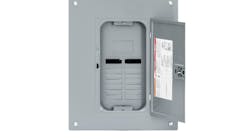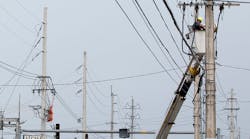It's never too tough to get electrical contractors to speak out on their greatest concerns.
A research study commissioned by the Electro-Federation of Canada and presented at the Electrical Supply & Distribution Conference held June 4-7 in Charlevoix, Quebec, offers a fascinating snapshot of what Canadian electrical contractors think about the services they require of electrical distributors, product branding and a broad range of other industry issues.
The study, “Understanding the needs, wants and trends of large electrical contractors in Canada,” was done by Pembroke Consulting Inc., a Philadelphia-based research firm that focuses on wholesale-distribution markets. It was based on more than 30 in-person interviews and over 300 survey returns from Canadian electrical contractors.
Mark Dancer, vice president, Pembroke Consulting, who managed the study, says although the survey respondents were Canadian contractors, their concerns track very closely with their U.S. counterparts, and that U.S. electrical distributors can learn from their input. Dancer says large electrical distributors need to think carefully about building their brand and communicating their message.
“There is a great deal of frustration directed toward large distributors,” he says. “There is an underlying theme of a promise going unfulfilled. Large contractors think large distributors should be able to step up and offer extra levels of service to support their needs. What they think they are getting from large distributors is bureaucracy and slow decision making. They can't get to people who make decisions. They are acting more like global companies as opposed to local distributors.
“Large distributors don't feel that way. They think they have something to offer. I think distributors in general and electrical wholesalers specifically don't think enough about how to communicate their brand and what they stand for.”
Dancer found that the customers of large Canadian electrical contractors are becoming more demanding, and are asking contractors to shorten project timelines, slash prices, provide turnkey solutions and pick up nontraditional project activities.
Contractors pass some of these requests along to electrical distributors, and are demanding customers in their own right, says Dancer. They place high importance on a wide set of value-added services (see sidebar on this page), including timely response to bids and lowest possible price, as well as ease of ordering, on-hand inventory, expedited delivery and in-depth product knowledge, he says.
The top five services for large contractors were (in descending order) timely response to bids, ease of ordering, availability of specific brands, lowest possible prices and immediate product availability. Smaller contractors had similar concerns, but they ranked “quality of the brands carried” and “in-depth product knowledge” in their top five concerns.
Electrical distributors can use this ranking of value-added services as a survey instrument with their contractor customers. This survey form is provided in the full study, available in its entirety at www.PembrokeConsulting.com. The survey is part of the study's “supplier tool kit,” which offers other tools for distributors on differentiating their value-added services and ranking their importance by customer, ranking the importance of brand by type of product, and exploring the information technology (IT) “painkillers” they can offer contractors to help them run their businesses.
Distributors, manufacturers and reps may be particularly interested in contractors' opinions on product brands (see sidebar on this page). For roughly half of the product categories in the study, brand held little value — the contractor's buying decision was based on source. The product categories where contractors were most willing to buy a different brand from a preferred distributor if that supplier did not carry their preferred brand were wire and cable, electrical connectors, (wire, grounding and termination), electrical fittings and boxes, lamps, and conduit and raceway accessories.
The product areas where electrical contractors would contact a different distributor to get a preferred brand if their first-call electrical distributor didn't stock the product were motor control and automation products, lighting fixtures, and telecommunications products. The buying preferences of smaller electrical contractors (five employees or less in this study) tended to follow those of larger contractors surveyed, but with wire and cable, they had less concern with brand than did the larger contractors.
The topic of distributor relations sparked some spirited responses. Said one respondent, “I can tell you that after 40 years in the industry, relationships with distributors are at an all-time low.”
One concern that surfaced was that the largest distributors had lost the personal touch. “Larger distributors have become too corporate,” said one respondent. “The people I am forced to deal with don't have any knowledge of the trade.”
“Large electrical contractors voiced many frustrations with the distributor supply chain, but more than 90 percent said they were looking to establish even closer working relationships with their best suppliers,” said Dancer. “This finding opens the door for distributors to develop creative, customer-driven value-added services and strategies.”
“This report will help our members better serve large electrical contractors, both collectively as a supply chain and as individual distributors and manufacturers,” added Rick McCarten, vice president of the Electro-Federation Canada's Supply and Distribution Council.
Electro-Federation Canada is a national, not-for-profit industry association representing over 250 member companies in the electrical, electronics and telecommunications industries in Canada.








